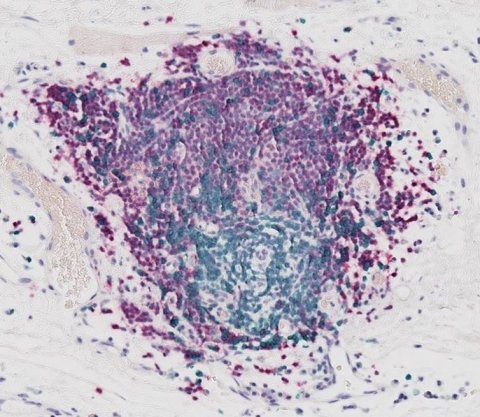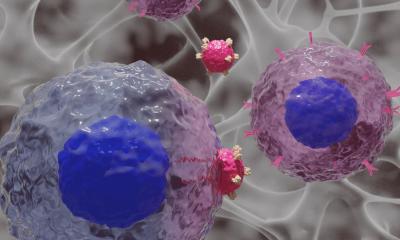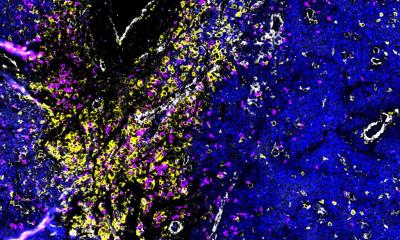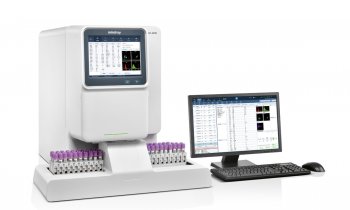News • Personalized treatment
Could B cells turn the tide in sarcoma immunotherapy?
How can the treatment of soft tissue sarcomas, these particularly resistant and aggressive forms of cancer, be improved and better personalized?
An international team led by Wolf Hervé Fridman with researchers from Inserm, Sorbonne Université and Université de Paris at the Cordeliers Research Center, in collaboration with the French League against cancer and Institut Bergonié, has shown that B cells also play a major role in predicting of patient’s response to immunotherapy. It was previously thought only T cells could be used in this way. Their findings, published in the journal Nature, pave the way for the personalization of treatments for patients with soft tissue sarcomas.

© Antoine Bougouin/Centre de recherche des Cordelier/Inserm, Sorbonne Université, Université de Paris
Soft tissue sarcomas are a heterogenous group of aggressive, chemotherapy-resistant cancers that affect the soft tissues of the body (fat, muscles, fibrous tissue, blood and lymphatic vessels, nerves, etc.). In the current clinical trials, only 15% of patients respond to immunotherapy, which raises the question of the needless exposure of the other patients to the toxicity of these treatments. Identifying markers that predict their response to immunotherapy is therefore crucial. A strategy that until now has been essentially focused on the T cells – immune cells capable of recognizing cells that are infected, cancerous or foreign to the body.
Through research published in Nature, a group led by Wolf Hervé Fridman with members from Inserm, Sorbonne Université and Université de Paris at the Cordeliers Research Center, in collaboration with the “Tumor identity card” team from the French League against cancer, Institut Bergonié, and teams from the USA and Taiwan, studied the question of identifying other potential markers.
They analyzed 608 tumors, classifying them into three groups according to the composition of their microenvironment: immunologically poor tumors (low in immune cells and poorly vascularized), highly vascularized tumors, and immunologically rich tumors. The latter present aggregates of various cell types with high levels of B cells, the immune cells responsible for the production of antibodies. These aggregates are called tertiary lymphoid structures. The researchers observed that an anti-tumor immune response initiates within them, thereby showing that the B cells could play an anti-tumor role. What is more, in a phase 2 clinical trial, the patients with immunologically rich tumors showed a high response rate (50%) to one immunotherapy: pembrolizumab. These patients also had a higher survival rate than those with immunologically poor or highly vascularized tumors.
A second study by a US team, co-signed by Wolf Hervé Fridman’s team at Cordeliers Research Center (Inserm/Sorbonne Université/Université de Paris), and published in parallel in Nature, extended these observations to include melanoma and kidney cancer. The results of these studies show that in addition to the T cells that are usually researched, the B cells play an essential role in the response to immunotherapy for certain cancers. These cells bring new hope for the treatment of soft tissue sarcomas, which are particularly resistant to standard therapies. In addition, from a personalized medicine standpoint, these findings could help orient clinical decisions and patient treatment by means of a simple test to identify those whose tumors are immunologically rich.
On the basis of these results, an initial French clinical trial coordinated by Antoine Italiano (Institut Bergonié, Université de Bordeaux), co-author of the first article, and which includes patients with such tumors, is currently ongoing within the French Sarcoma Group.
Source: Inserm
17.01.2020











